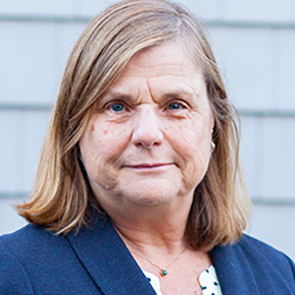
Career
Current Position: Writer/Educational Consultant
Dr. Opperman is a writer and consultant in science curriculum and educational policy. She was the department chair at Greely High School in Cumberland, Maine, retiring after 40 years of science teaching. Her chemistry teaching was recognized by the New England Institute of Chemists in 2008. Concurrently, she taught at the Maine College of Art from 1985 to 1987, and at Westbrook College, Portland, Maine, from 1984 to 1986. She was a visiting scholar at MIT from 2006 to 2009.
Dr. Opperman has been involved in public service, public policy, and educational leadership at the local and state level since 1980. Currently, she served on the Maine Department of Education Educator Talent Committee and is a writer of the strategic plan to recruit and retain teachers.
Publications
- Elementary school teachers committed to teaching science, in Gallavan, N.P. & Putney, L.G. (Eds.)
- Teacher Education Yearbook XXV: Building upon inspirations and aspirations with hope, courage, and strength: Teacher educators’ commitment to today’s teachers and tomorrow’s leaders, Taylor & Francis Publishing Group, New York, NY. 2016.
- Scientific writing and technological change:
- Teaching the new story of scientific inquiry, with M. Poe, in Herrington, A., Hodgson, K. S. & Moran, C. (Eds.)
- Teaching the new writing: Technology, change, and assessment in the 21st century classroom. Teachers College Press. New York, NY. 2009
- Those Who Can’t Do, Teach. Network of Educators in Science and Technology, MIT, Cambridge, MA. 2009
- An Assault on Science. Network of Educators in Science and Technology, MIT, Cambridge, MA, 2006.
Dr. Opperman has also created curricular materials that integrate science education, writing instruction, art and chemistry, science fair projects and professional project management.
Presentations
Julianne Opperman has presented and participated at international science and science education conferences in the United States, Europe, and China. Several of the presentations focused on the visualization of scientific concepts, as well as scientific and technical writing
Degrees:
- Ph.D. in public policy, University of Southern Maine, 2015
- M.S. in nutritional biochemistry and metabolism, Massachusetts Institute of Technology, 1980
- B.A. in molecular biology, Wellesley College, 1976
Dissertation
Title: Elementary Teachers Committed to Actively Teaching Science and Engineering
Abstract: Committed elementary teachers of science and engineering, members of a professional learning community called Collaborative Conversations in STEM, were studied to elicit their perceptions of experiences that influenced their commitment to, and their pedagogical content knowledge of, STEM teaching and learning. The hermeneutic phenomenological interviews enabled the teachers to express their beliefs in their own words. Data analysis employed a theoretical framework that investigated teacher epistemology and knowledge in light of their experiences. Findings revealed a web of lifelong experiences unique to each individual, and evidential of the committed elementary scientist-teachers’ present-day values, teaching epistemology, lifelong learning, and emotional and intellectual engagement. Scientist-teachers are individuals whose teaching and learning characteristics reflect those of scientists and engineers.
Evidence indicated that no single transformative learning experience resulted in those elementary teachers’ commitment to STEM teaching and learning, but recent professional development activities were influential. Formal K-16 STEM learning was not uniformly or positively influential to the teachers’ commitment to, or knowledge of, STEM.
Findings suggest that ongoing professional development for STEM teaching and learning can influence elementary teachers to become committed to actively teaching STEM. The Collaborative Conversations in STEM provided intellectual and emotional engagement that empowered the teachers to provide STEM teaching and learning for their students and their colleagues overcoming impediments encountered in a literacy-focused curriculum. Elementary teachers actively committed to teaching science and engineering can undergo further transformation and emerge as leaders.

